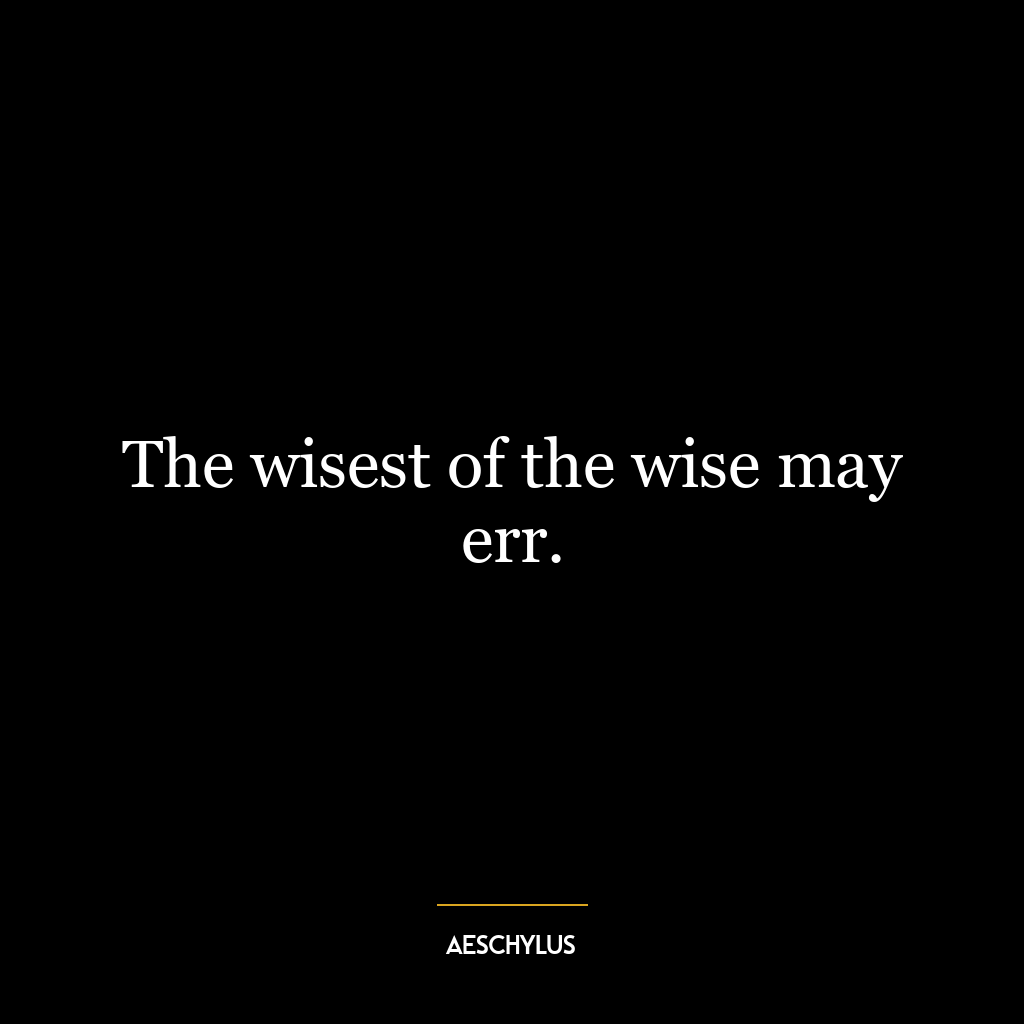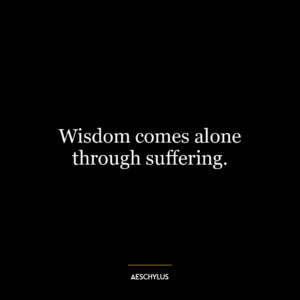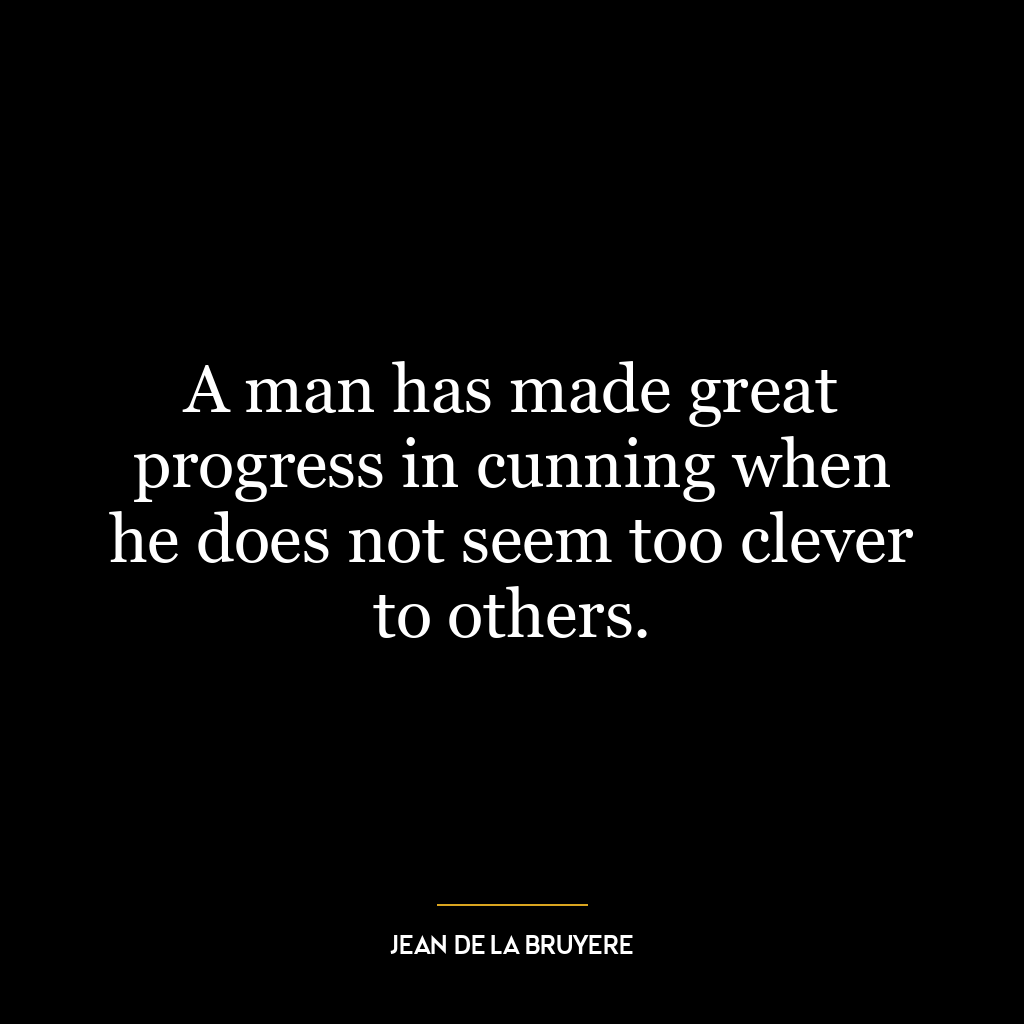The wisest of the wise may err.
“The wisest of the wise may err” is a profound statement that highlights the inherent fallibility of human beings, irrespective of their wisdom or intelligence. It suggests that wisdom does not equate to infallibility, and even the most enlightened individuals can make mistakes. This quote emphasizes the human condition of imperfection and the universal susceptibility to error.
The depth in this quote lies in its humbling reminder that wisdom is not a shield against mistakes but a tool for learning from them. It suggests that wisdom is not about being right all the time; instead, it’s about having the humility to accept when you’re wrong and the capacity to learn and grow from those errors.
In today’s world, this idea is particularly relevant in the realm of leadership and decision-making. Leaders, even the wisest ones, are prone to making mistakes. However, what differentiates a wise leader from others is the ability to acknowledge these mistakes, learn from them, and use these lessons to make better decisions in the future.
In terms of personal development, this quote encourages us to embrace our mistakes as opportunities for growth rather than viewing them as failures. It reminds us that even the wisest individuals are not immune to error, and thus, we shouldn’t be too hard on ourselves when we err. Instead, we should focus on learning from these mistakes and continuously improving ourselves. This perspective promotes resilience, self-compassion, and a growth mindset, which are vital elements for personal development and mental well-being.
In conclusion, this quote is a timeless reminder that wisdom comes with the humility of knowing that you can be wrong and the courage to learn from those mistakes. It encourages us to strive for wisdom, not perfection, and to view our mistakes as stepping stones to growth and improvement.















